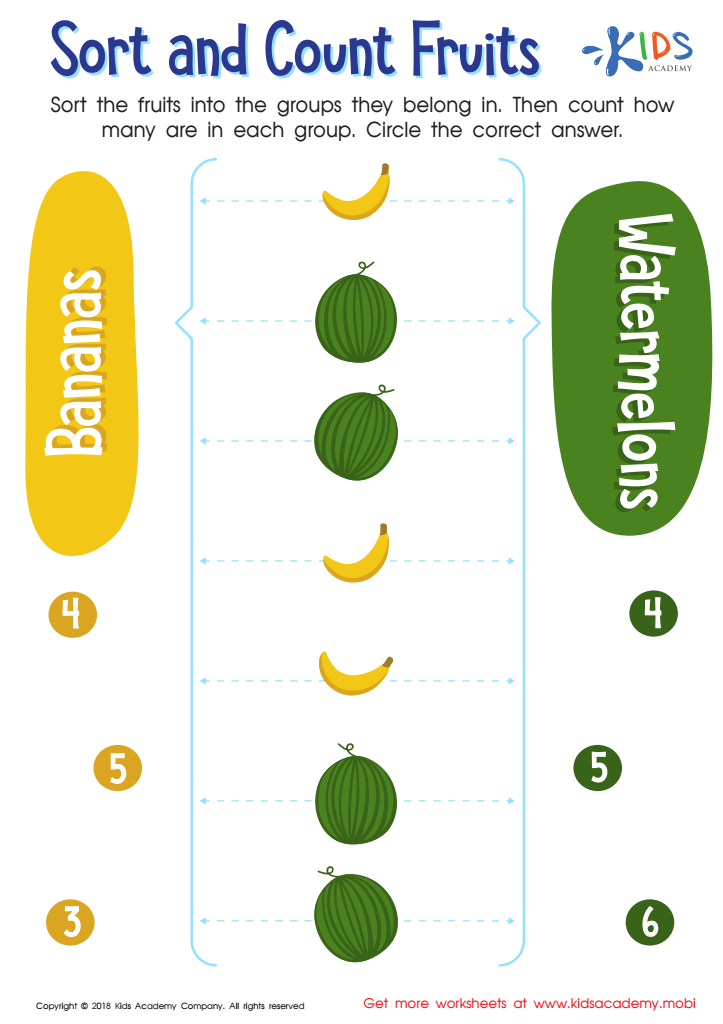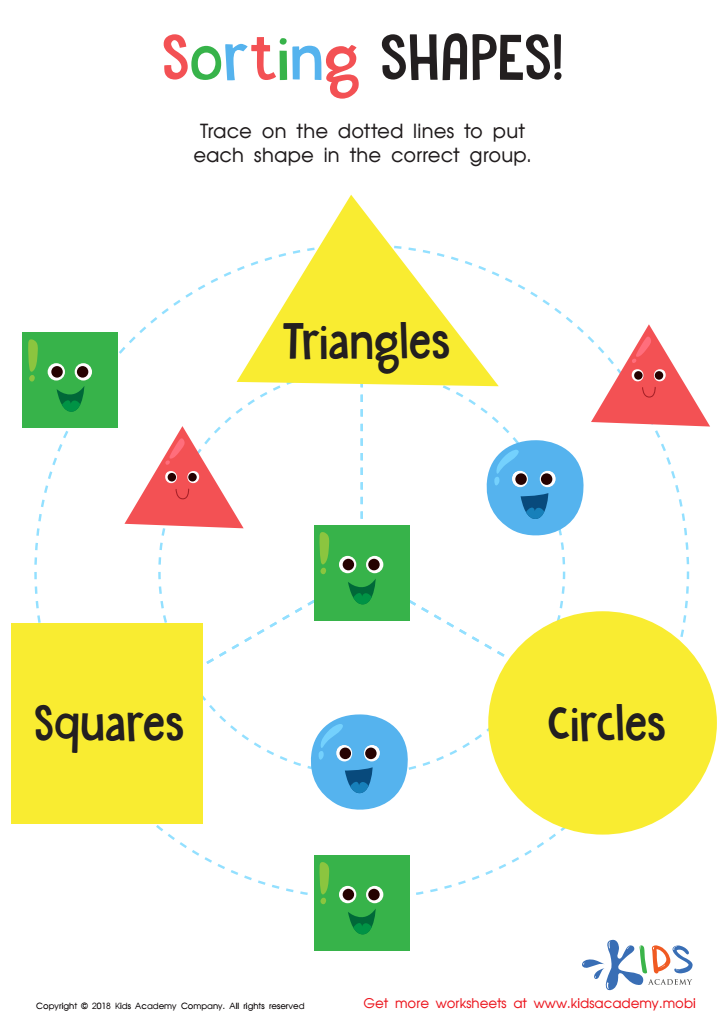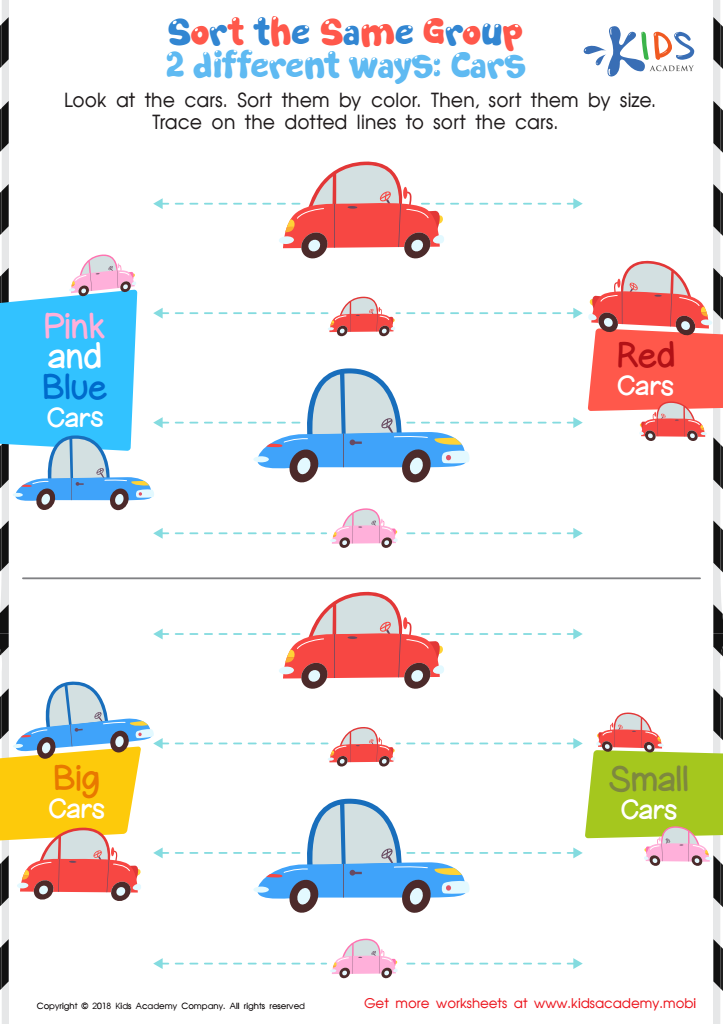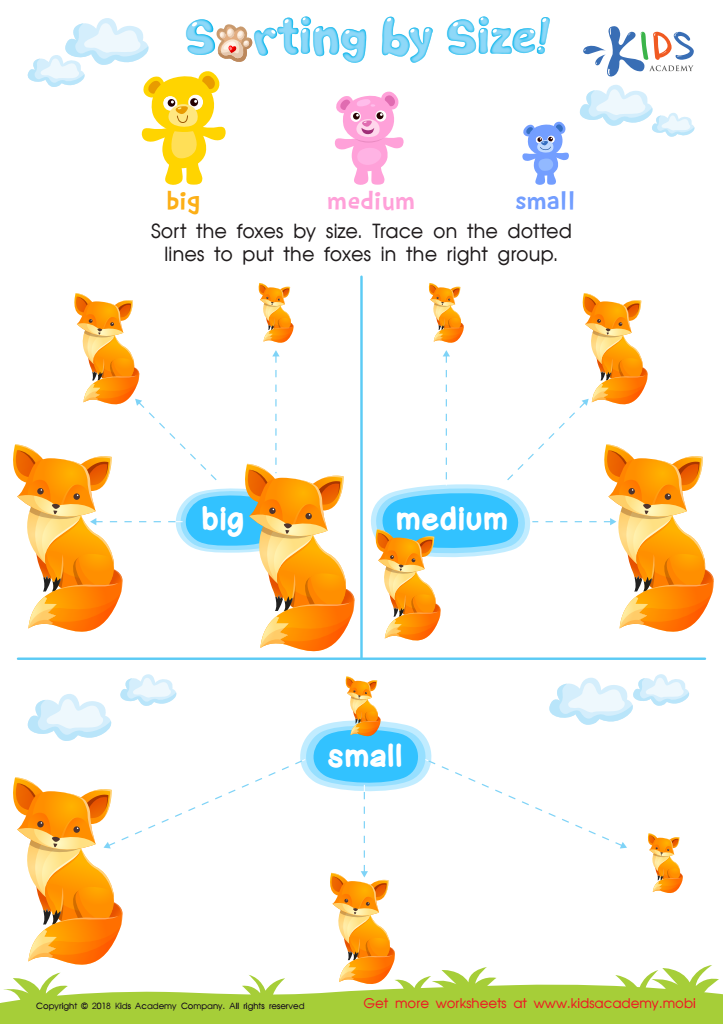Sorting skills Sorting Worksheets for Ages 4-5
5 filtered results
-
From - To
Develop your child's early math abilities with our "Sorting Skills" worksheets, designed specifically for ages 4-5. These engaging activities help young learners understand fundamental concepts of sorting by color, shape, size, and more. Through fun and interactive exercises, children will enhance their reasoning, categorization, and fine motor skills. Our expertly crafted worksheets serve as an excellent resource for parents and teachers aiming to build a solid mathematical foundation. Boost your little one's sorting proficiency while keeping them entertained and excited about learning! Discover the benefits today at Kids Academy.


Sort and Count Fruits Worksheet


Sort and Count to the Moon Worksheet


Sorting Shapes - Part 3 Worksheet


Sort the Same Group 2 Different Ways: Cars Worksheet


Sorting by Size Worksheet
Sorting skills are fundamental to cognitive development in children aged 4-5, serving as the building blocks for more complex thought processes. Parents and teachers should prioritize sorting activities because they lay the groundwork for critical thinking, problem-solving, and organizational skills. By categorizing objects based on attributes such as color, size, shape, or type, children begin to understand the concept of attributes and differences, which are essential for math and science learning.
Engaging in sorting activities enhances children's attention to detail and improves their ability to observe and compare, which are crucial skills for early literacy. For instance, recognizing different shaped letters and numbers is a direct application of sorting skills. Additionally, sorting nurtures executive function by promoting organized thinking and sequential activity planning, which are important for everyday tasks and classroom routines.
Moreover, sorting fosters language development as children learn to describe why and how they categorized objects, expanding their vocabulary and communication skills. Socially, these activities can be collaborative, teaching children how to cooperate, share, and explain their reasoning to peers. Sorting is not only beneficial for academic readiness but also wonderful preparation for lifelong learning, making it a crucial aspect of early childhood education.
 Assign to My Students
Assign to My Students





















